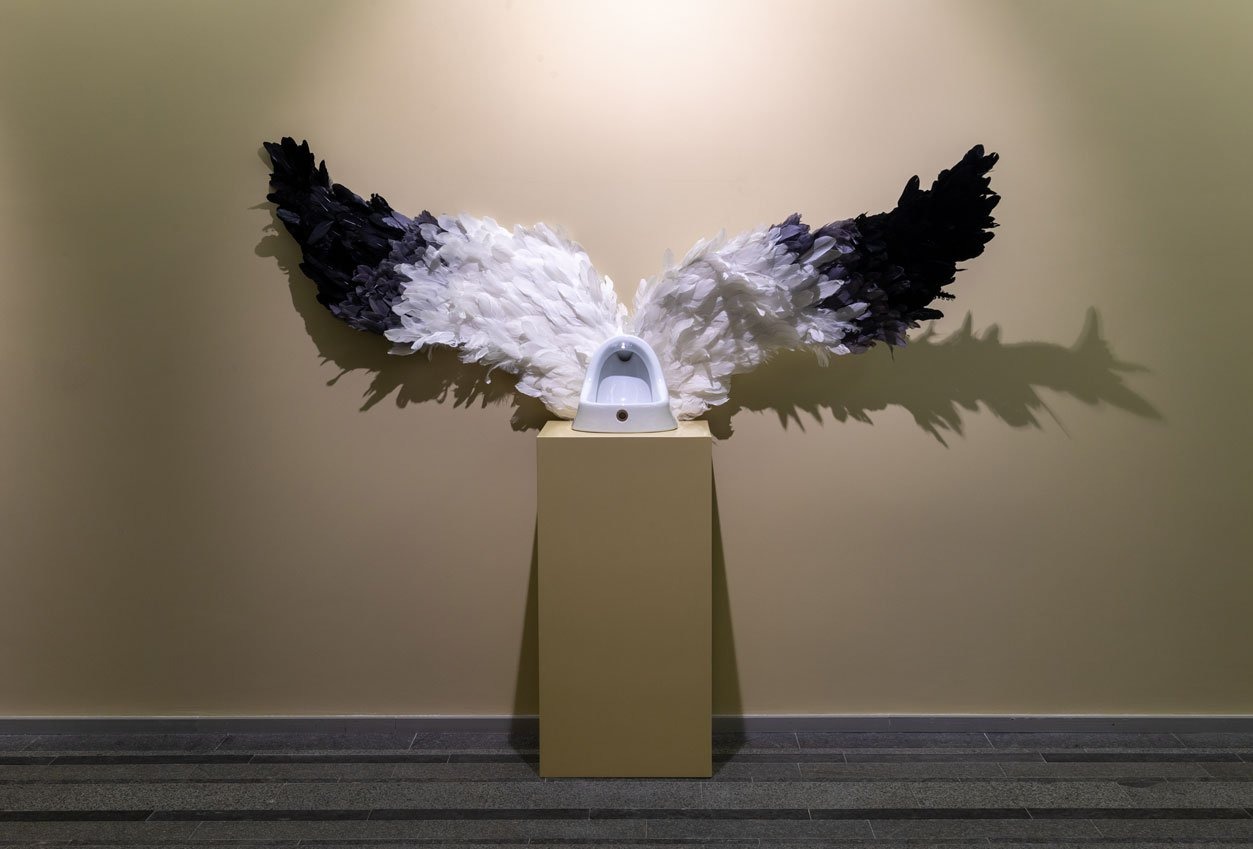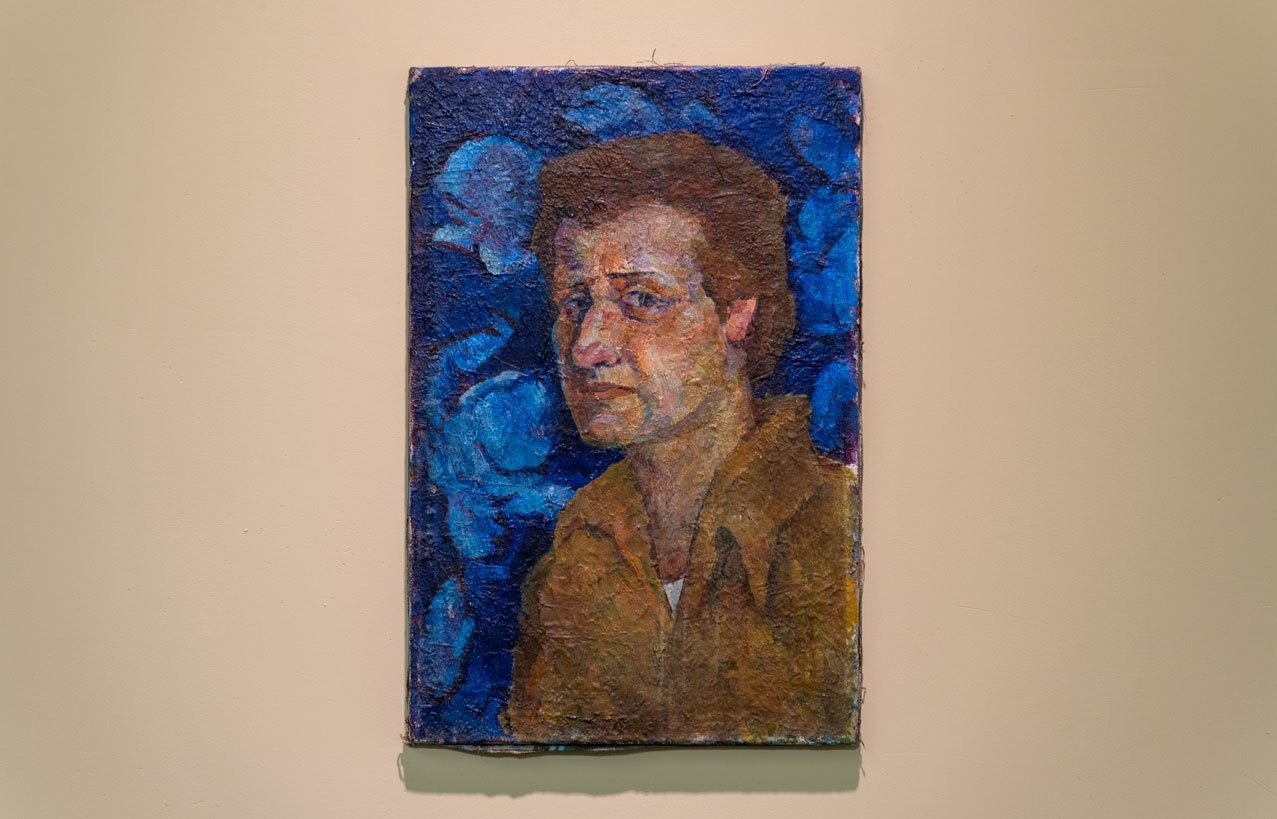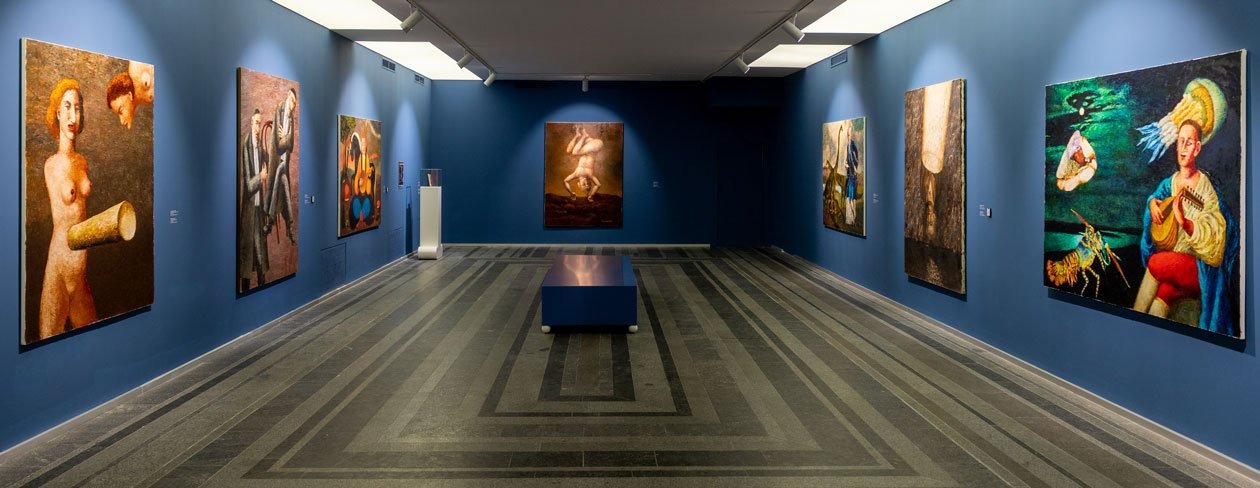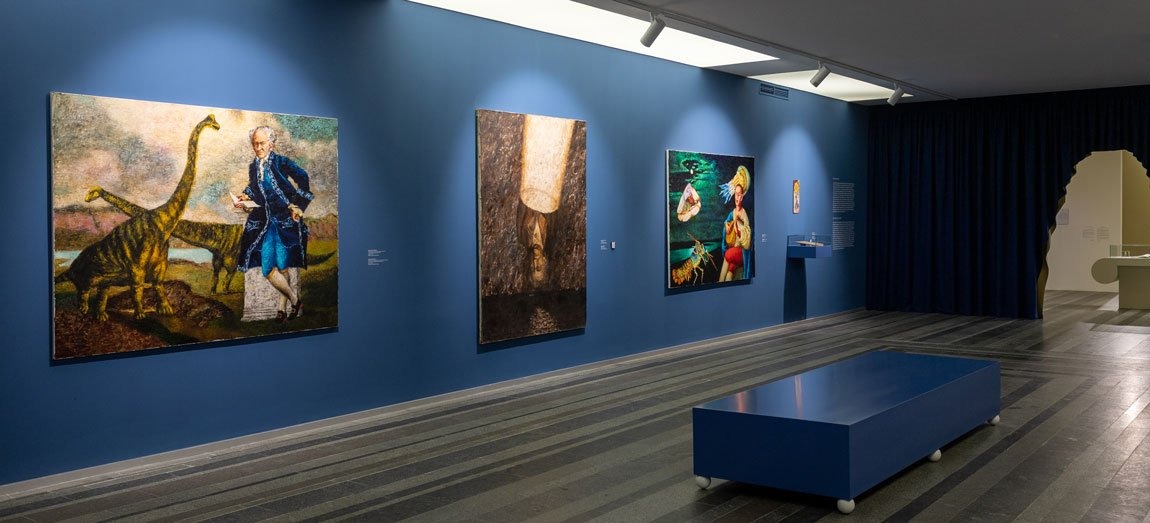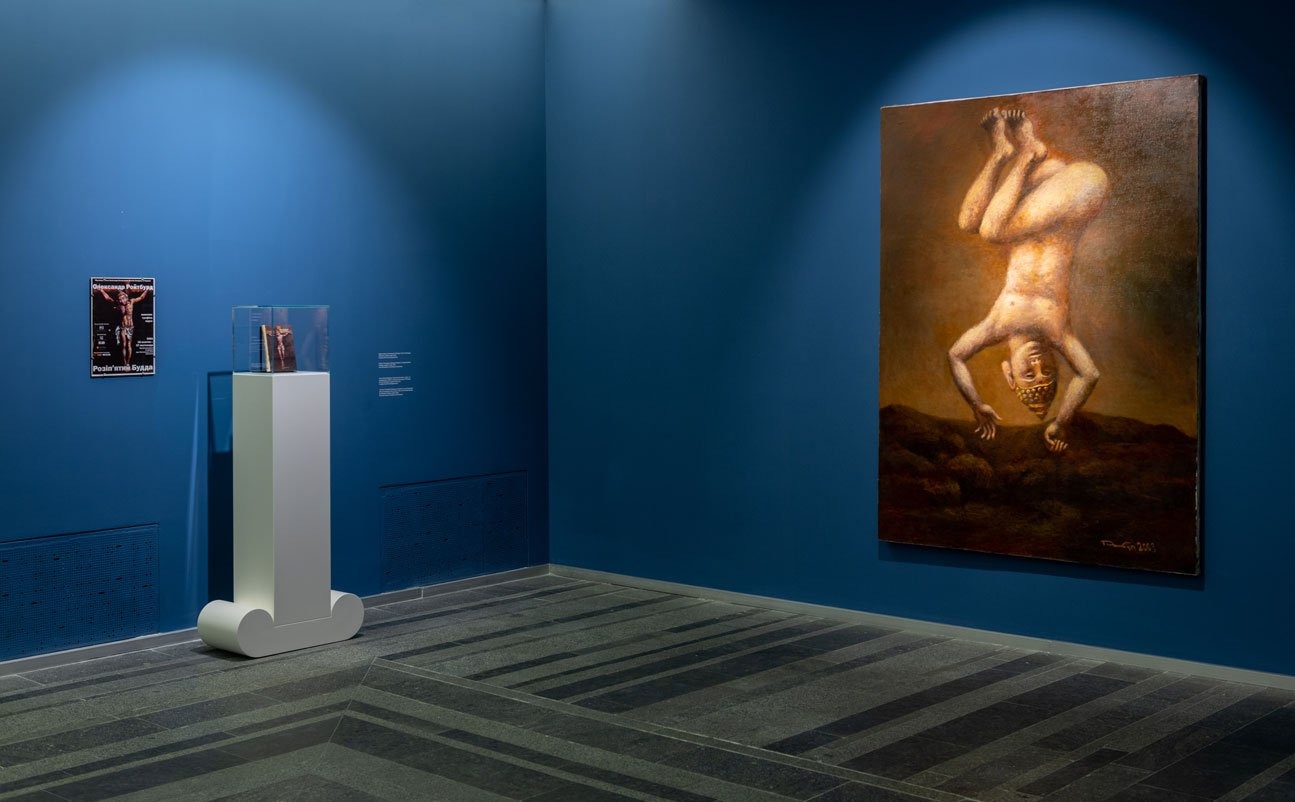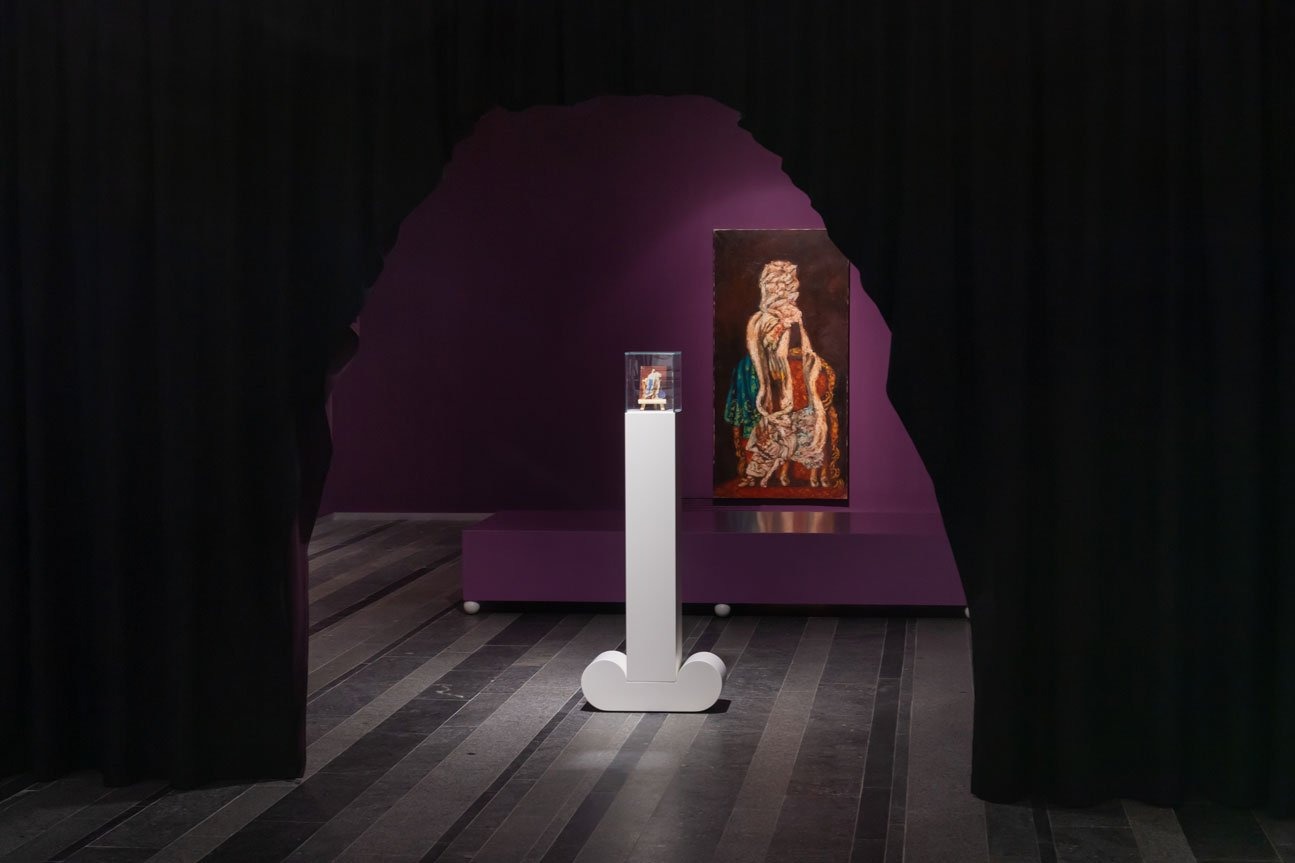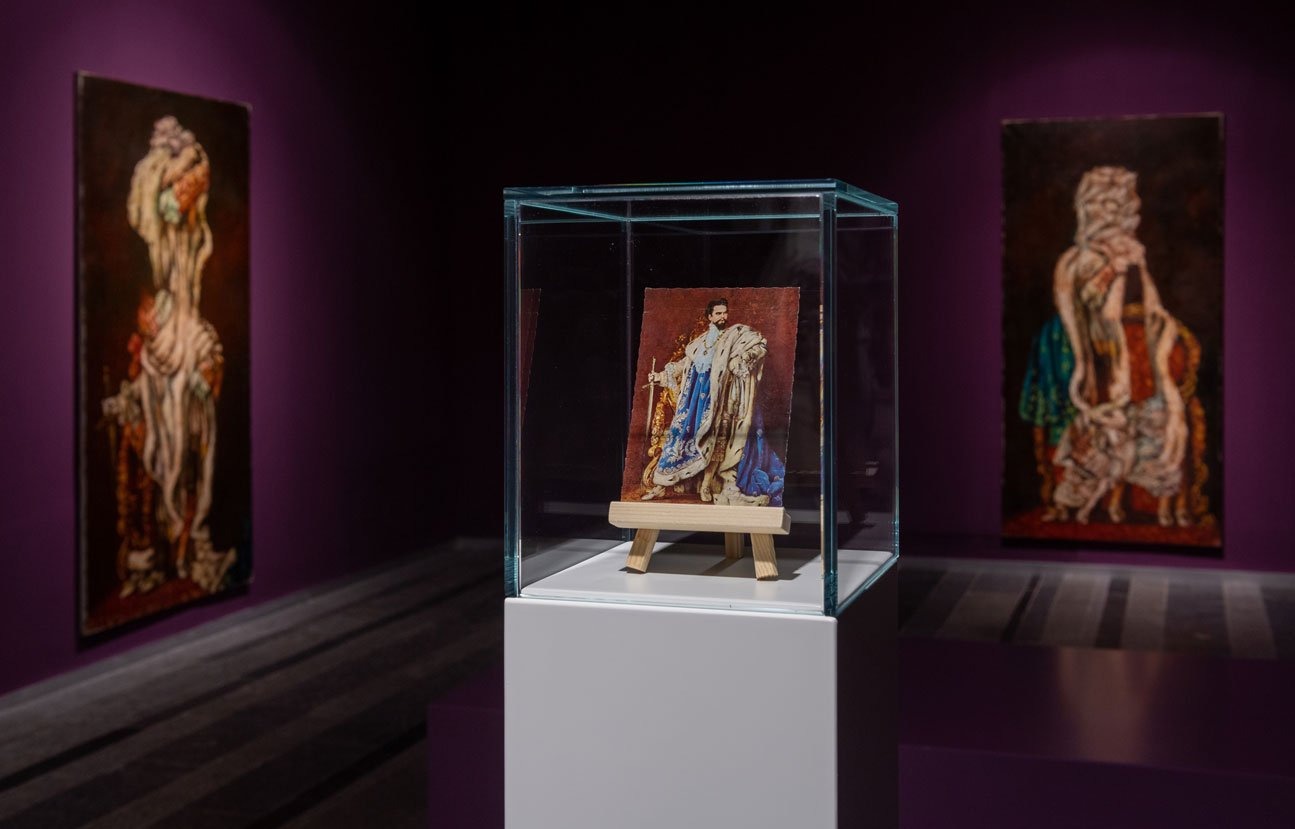“Oleksandr Roitburd. Power Theory” An exhibition of the Research Platform of the PinchukArtCentre
The PinchukArtCentre presents the exhibition “Oleksandr Roitburd. Power Theory”.
Oleksandr Roitburd: Power Theory exhibition is the outcome of the continuous efforts of the PinchukArtCentre Research Platform, which delves into phenomena and personalities significant to the history of Ukrainian art.
This exhibition was supposed to open in March 2022, six months after the artist’s untimely death. Our plans, along with those of other cultural institutions and millions of Ukrainian citizens, were disrupted by the full-scale Russian invasion. However, the relevance of our chosen topic – the interaction of the artist, art, and power – has become even more significant for society over the years. Oleksandr Roitburd believed that an artist inherently possesses the power to influence the world and dedicated his life to fulfilling this vision. In his art, encyclopedically saturated to the point of redundancy, he identified various incarnations of power, including those manifested through myths and superstitions, the peaks of the world’s intellectual and artistic heritage, the physical and subconscious, as well as political ideologies and images of specific statesmen. He advocated for the institutionalization of Ukrainian contemporary art, and towards the end of his life, he assumed the leadership and spearheaded the reform of an institution – the Odesa Fine Arts Museum. Thanks to Roitburd and the team he assembled, the museum attained the status of a national institution.
In 1995, Oleksandr Roitburd published his own manifesto, Art and the State, in which he wrote: “Objectively, it is the state that is the only force interested in our existence. We are able to create a more attractive image for it in the eyes of the international community. We are better positioned to address the challenges of creating a new spiritual climate in culture and society, which is necessary during the stages of formation and reform. We are able to help society do away with stereotypes, become more open and dynamic. We are able to make a tangible contribution to the creation of a modern culture worthy of a European country, to give Ukraine relevant contemporary art focused on global artistic issues… We and the state are interested in each other. It’s time to legalize our relationship.”
To implement this vision, Oleksandr Roitburd engaged with representatives of a wide range of political forces, established contacts with government authorities and influential businesses, and remained open to various people, far from snobbery. As shows the start of the exhibition, departs from his meeting with Harald Szeemann, one of the most influential curators in the world history. At the same time, Roitburd has always been characterized by irony and a tendency to openly criticize even those representatives of the authorities whom he supported, particularly if he observed antimodern or anti-democratic manifestations in their activities. He believed in еnlightenment, freedom, and the absolute importance of art. In the end, this journey led the artist to a position of power – in 2020, he was elected as a member of the Odesa Oblast Council.
“The topic of power is extremely relevant in today’s world. Russia’s war against Ukraine has become a frontline in the confrontation between dictatorship and democracy. Another global challenge is populism. Oleksandr Roitburd believed in the educational project and the ability of civil society to defend universal values. And he saw uncontrolled power as a threat to both rights and freedoms and to the government itself,”
The selection of works allows to understand the artist through his own perception: the interaction between culture, society, and power. Focusing exclusively on the works, documents, and artefacts from private collections and family, this exhibition is the outcome of the continuous efforts of the PinchukArtCentre Research Platform, to delve into phenomena and personalities significant to the history of Ukrainian art.
For the exhibition, Oleksandr Burlaka was invited to create an exhibition architecture that in itself comments on the figure of Roitburd and specifically his city of birth, Odesa.
Exhibition curator: Kostiantyn Doroshenko, affiliated expert of the Research Platform of the PinchukArtCentre.
Exhibition architect: Oleksandr Burlaka.
Video tour of the exhibition “Oleksandr Roitburd. Power Theory”
THE POWER OF THE ARTIST.
THE POWER OF CULTURE
This section of the exhibition is devoted to Oleksandr Rojtburd’s dialogue with figures, images, and ideas of world culture. It is precisely this culture that the artist believed to drive civilizational development and be true power, considering thinkers and artists to be the ones whose vision, imagination, insights, delusions, or even madness direct the course of history. In Roitburd’s eyes, talent, gift, and bold thinking gave one the right to any extravagance and self-centeredness, absolving the individual of any moral limitations, justifying practices unacceptable in terms of social norms or even common sense. Postmodern irony, the devaluation of ideological hierarchies and the conviction that there can be no taboos in art constituted a natural development of the Enlightenment project for the artist. In this project, he also included himself, remaining an optimist about the prospects of increasing freedom both for the humankind and for the individual, despite any socioeconomic and political crises.
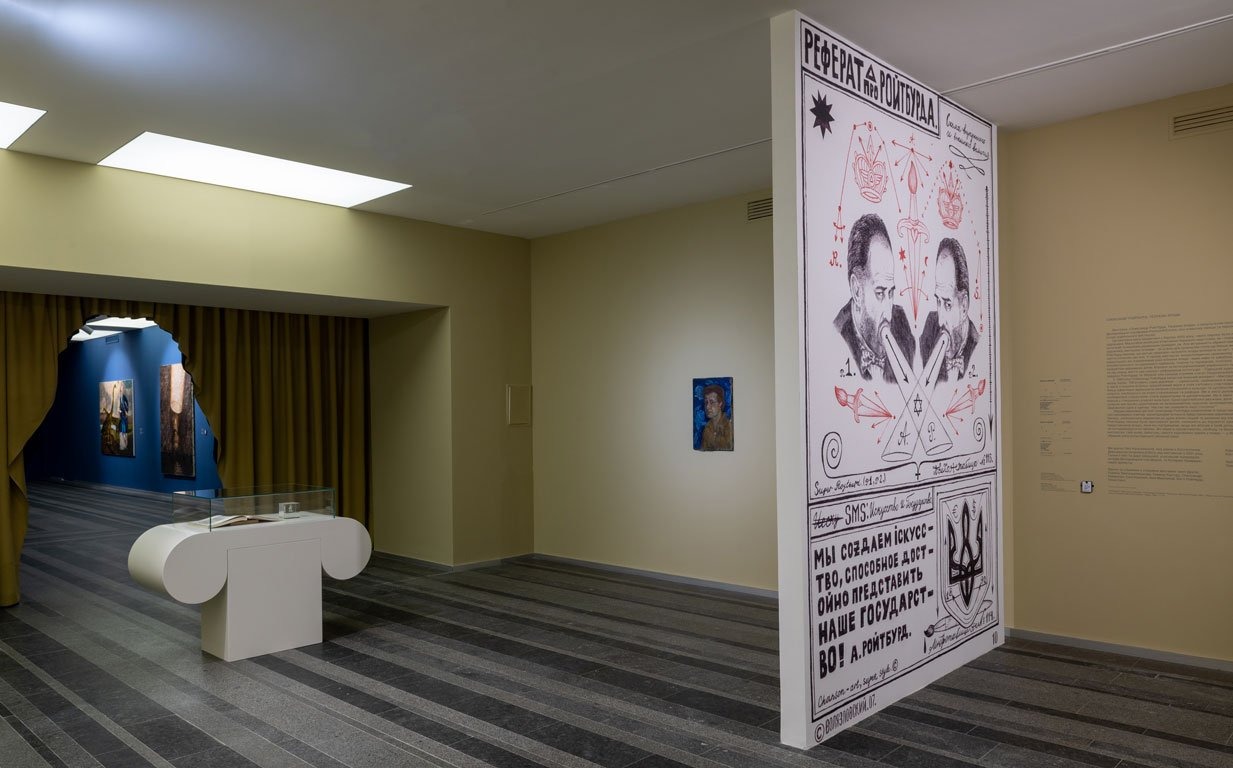
Stas Voliazlovskyi
Essay about Roitburd, 2007
exhibition copy, digital print
Image from the archive of Karas Gallery
The right to reproduce is granted by Grynyov Art Collection
Photo in the exposition
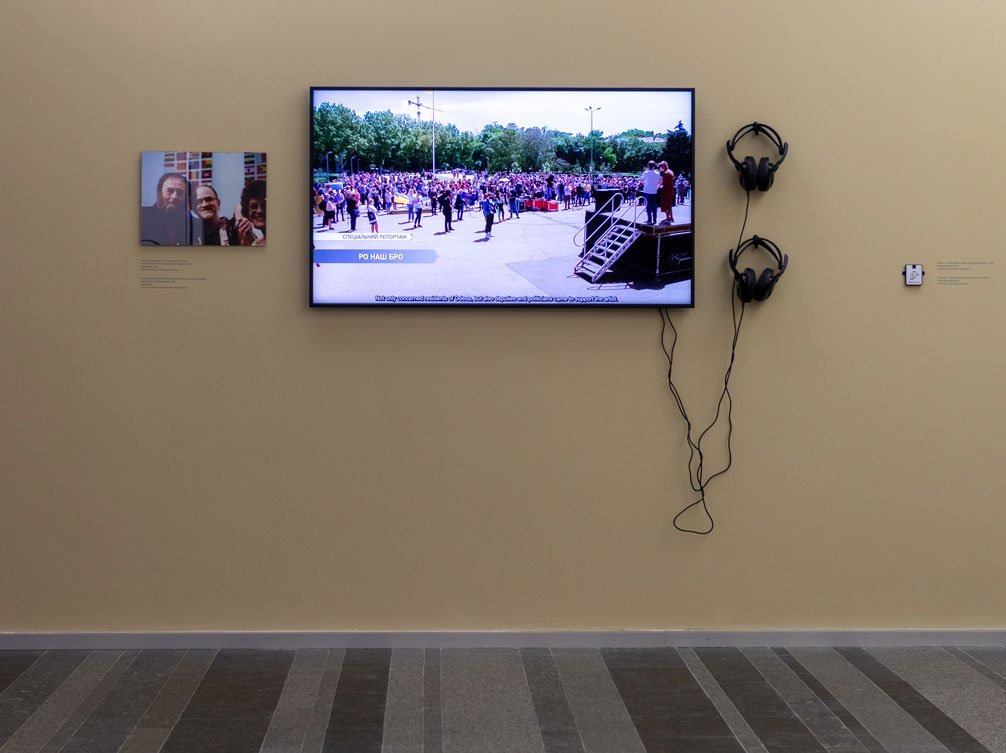
Harald Szeemann and Oleksandr Roitburd at the inauguration of the 49th Venice Biennale, 2001
Digital print
From the archive of Kostiantyn Doroshenko
The rally in support of Oleksandr Roitburd, 2020
video documentation
Courtesy of Dumskaya media
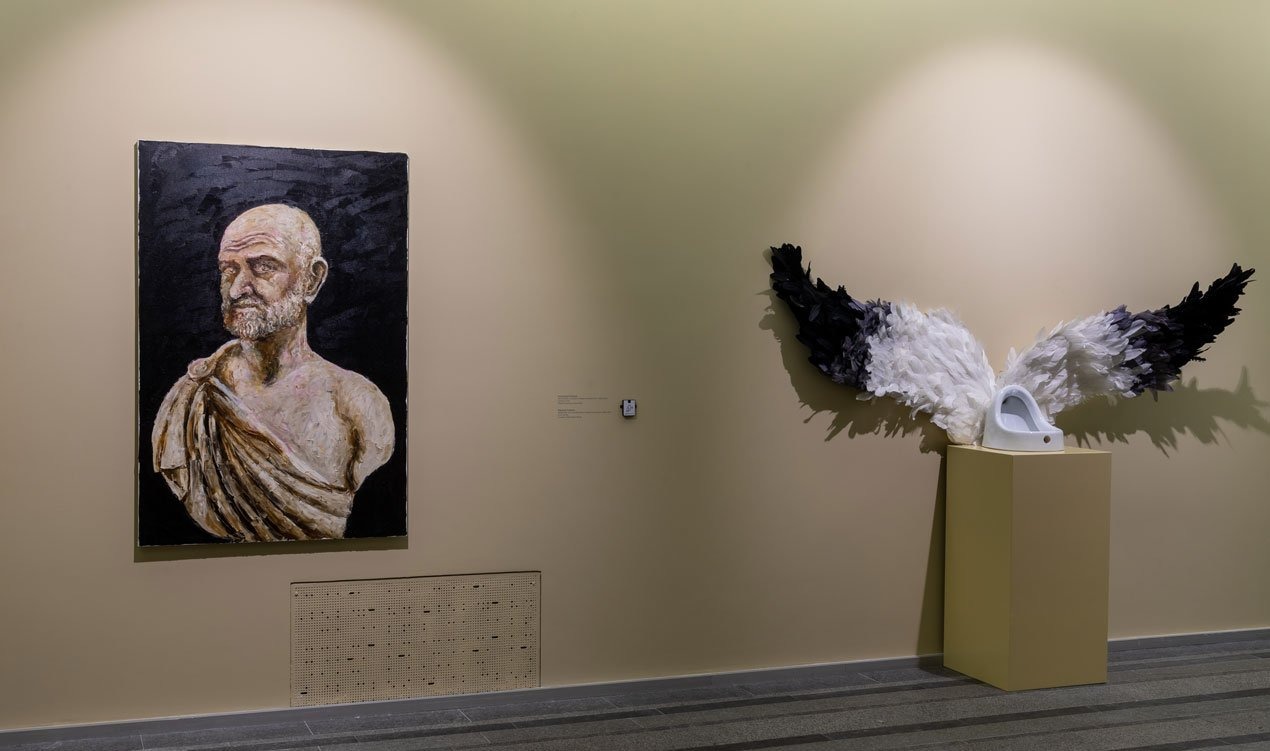
Oleksandr Roitburd
Self-portrait, from the Exercises In Being Loose project, 2020–2021
oil on canvas
Courtesy of the Artist’s Family
Photo in the exposition
POLITICAL POWER
Oleksandr Rojtburd’s youth took place during the period of Gorbachov’s “glasnost,” when, for the first time in decades of Bolshevik single-minded culture, citizens of the Soviet empire felt they had the right to speak out, to think and choose on their own, and influence the situation in the state. Most importantly, they gained experience of victory and liberation because this resulted in the collapse of the USSR monster, even as it lives on in certain structures, thinking and customary practices. Russia’s war against Ukraine, which began as a hybrid war, is essentially the last Soviet war against the right of people and nations to freedom. Interest in political processes, confidence that a person, and even more so an artist, can influence their development, accompanied Roitburd throughout his life. He was sincerely concerned about the political situation in Ukraine, actively commented on it in artistic works, interviews, and on social media. The artist sought and found opportunities to communicate with representatives of politics and power, caught their eye with paradoxical and sometimes sarcastic works, demanding attention to the field of culture and art. For the artist, the Revolution of Dignity became the climactic point of the history of independent Ukraine, which he perceived passionately and emotionally, as life itself.
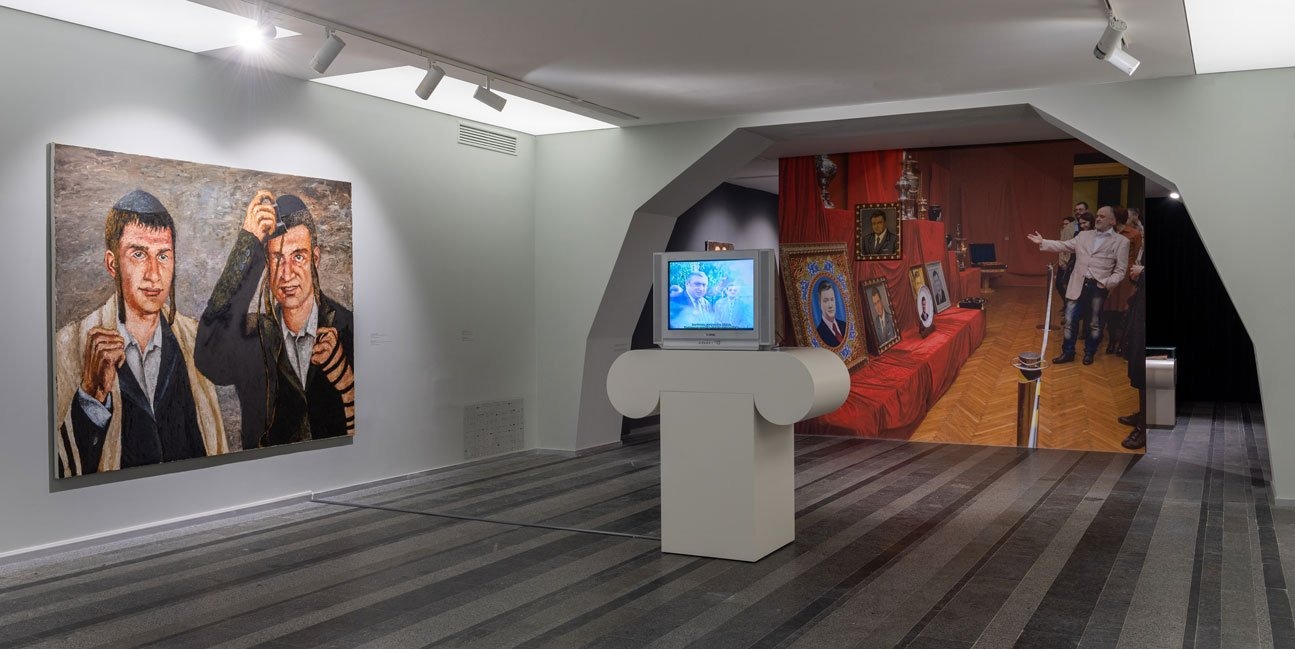
Oleksandr Roitburd
The Klychko brothers from If there is no water in the tap… series, 2011
oil on canvas
Courtesy of the Artist’s Family
Photo in the exposition
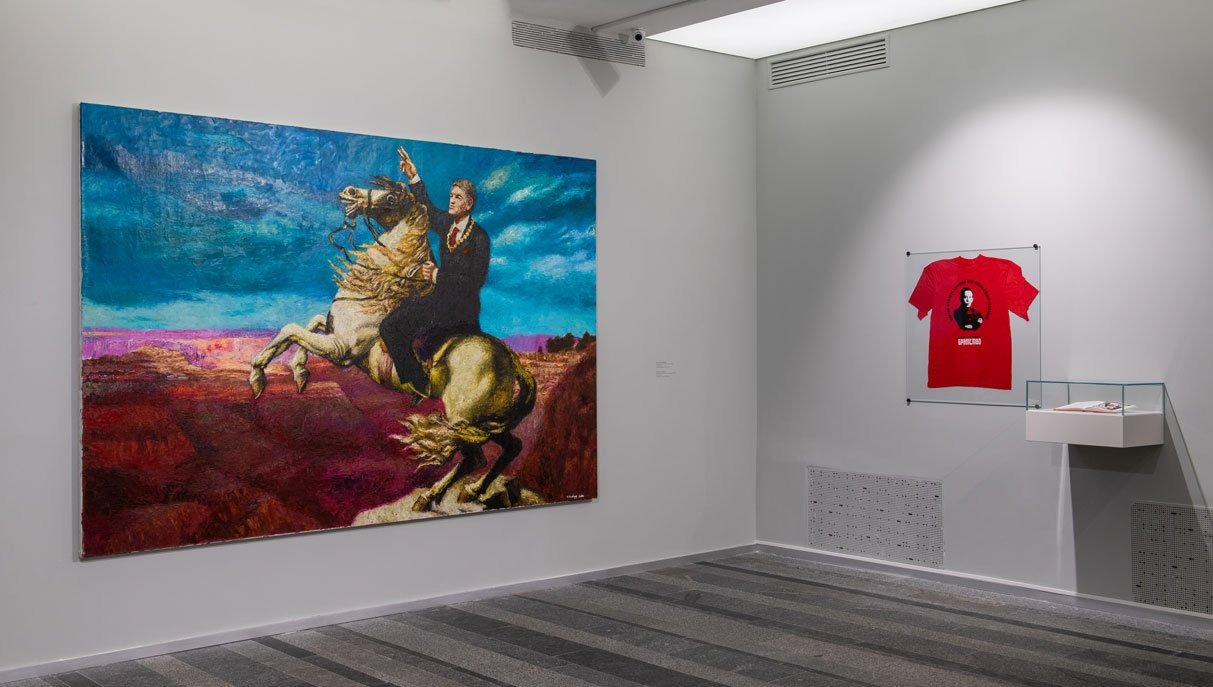
Oleksandr Roitburd
Equestrian portrait of Viktor Yushchenko, 2006
oil on canvas
Collection of Mykhailo Vasylenko
Photo in the exposition
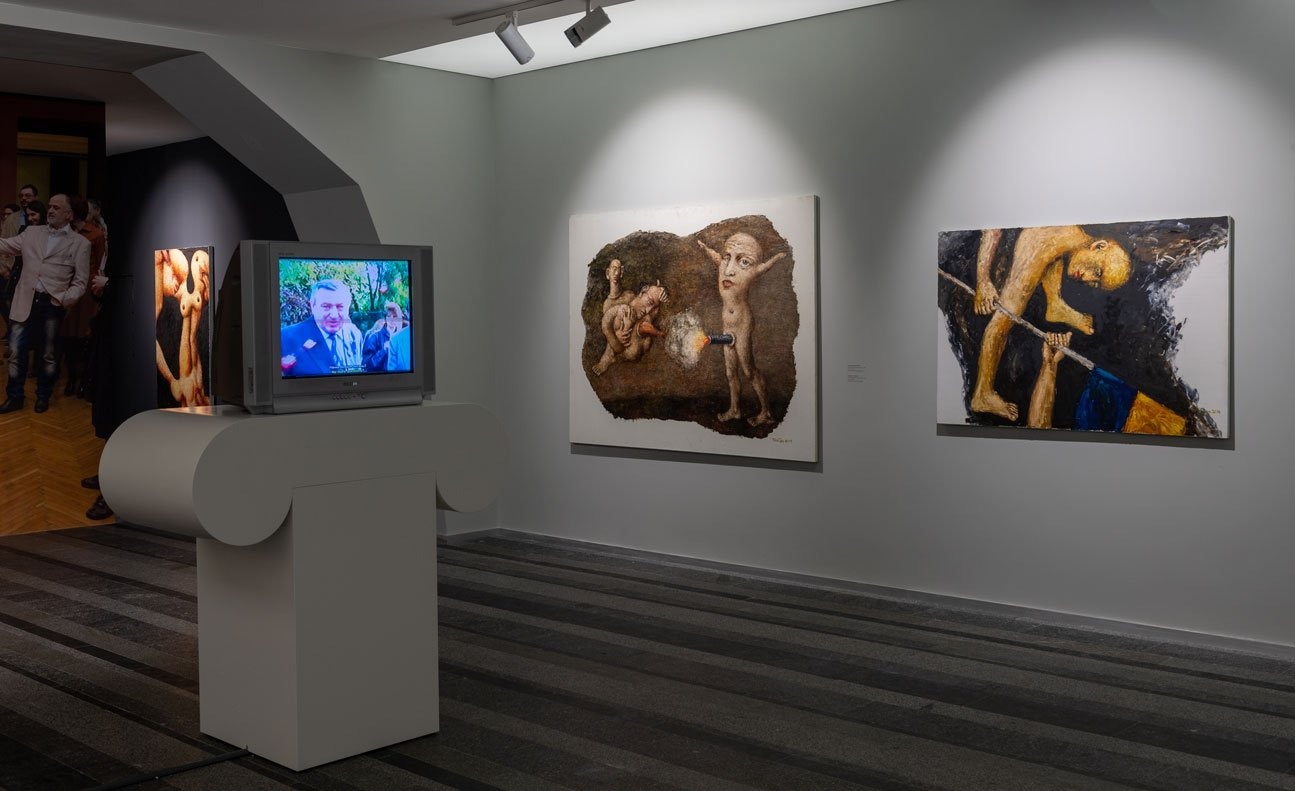
Oleksandr Roitburd
Video portrait of Eduard Hurwitz, 1997
video, 2’00
Collection of the Museum of Modern Art of Odesa
Oleksandr Roitburd
A Premonition of Hybrid War, 2015
oil on canvas
Collection of Volodymyr Mitin
Photo in the exposition
Oleksandr Roitburd
The One Who Raises the Flag, 2014
oil on canvas
Collection of the Museum of the Revolution of Dignity
Photo in the exposition
THE POWER OF THE BODY AND THE SUBCONSCIOUS.
ABSOLUTE POWER
There are things in the world that hold power over an individual, no one can escape. The body, health, the mind. They can be adjusted, you can watch how they function, but you cannot ignore them. Oleksandr Roitburd’s love for freedom, his categorical reluctance to accept dogmas and restrictions, were expressed in his works as a rebellion against anatomy, a phantasmagoria of visual metamorphoses. He recognized the power of sexuality over man as a biological and social being, and explored this subject through a wide variety of images, challenging taboos. The artist saw just as much importance in the power of the subconscious — both individual and collective. The experience of the XX century totalitarianism and the threat of its comeback remained in Roitburd’s own subconscious as the manifestation of the greatest horror. He brilliantly overcame fear with ridicule, and beat totalitarian leaders by driving up the absurdity. But he consistently recognized absolute power as a disease of humankind, which, like a cancerous tumor, is fatal for a society and for itself.
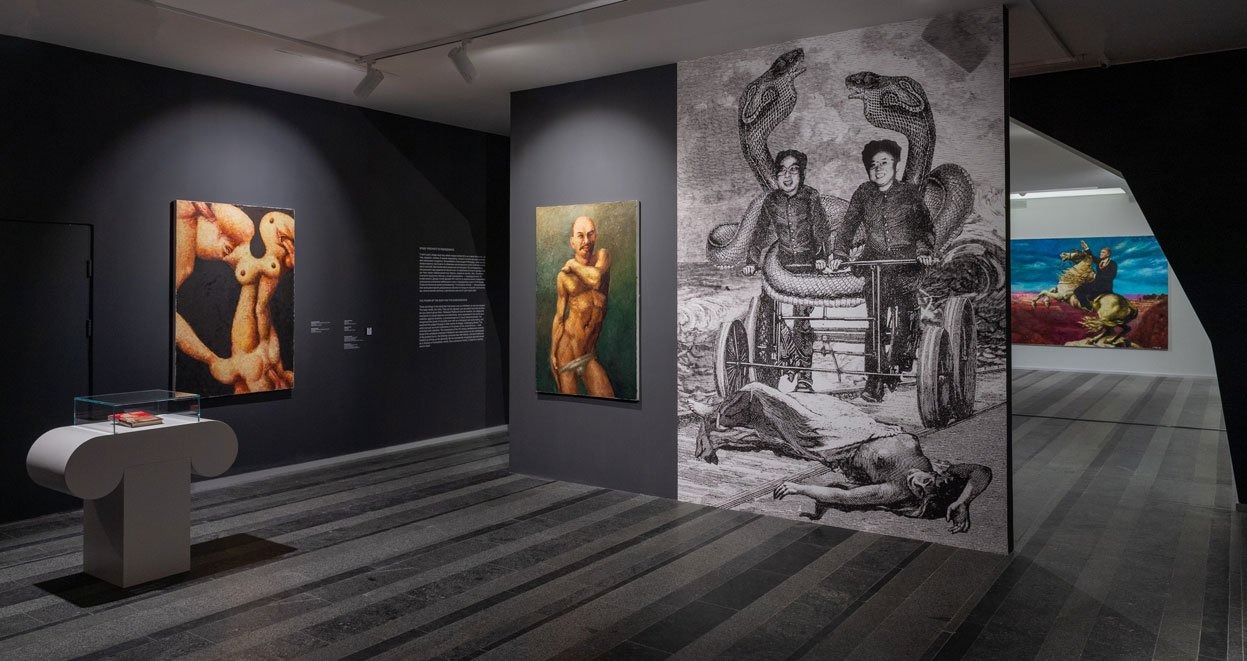
Oleksandr Roitburd
From Max Ernst Neizvestny series, 1997
exhibition copy, digital print
From the archive of Kostiantyn Doroshenko
Reproduction rights granted by the Artist’s family
Photo in the exposition
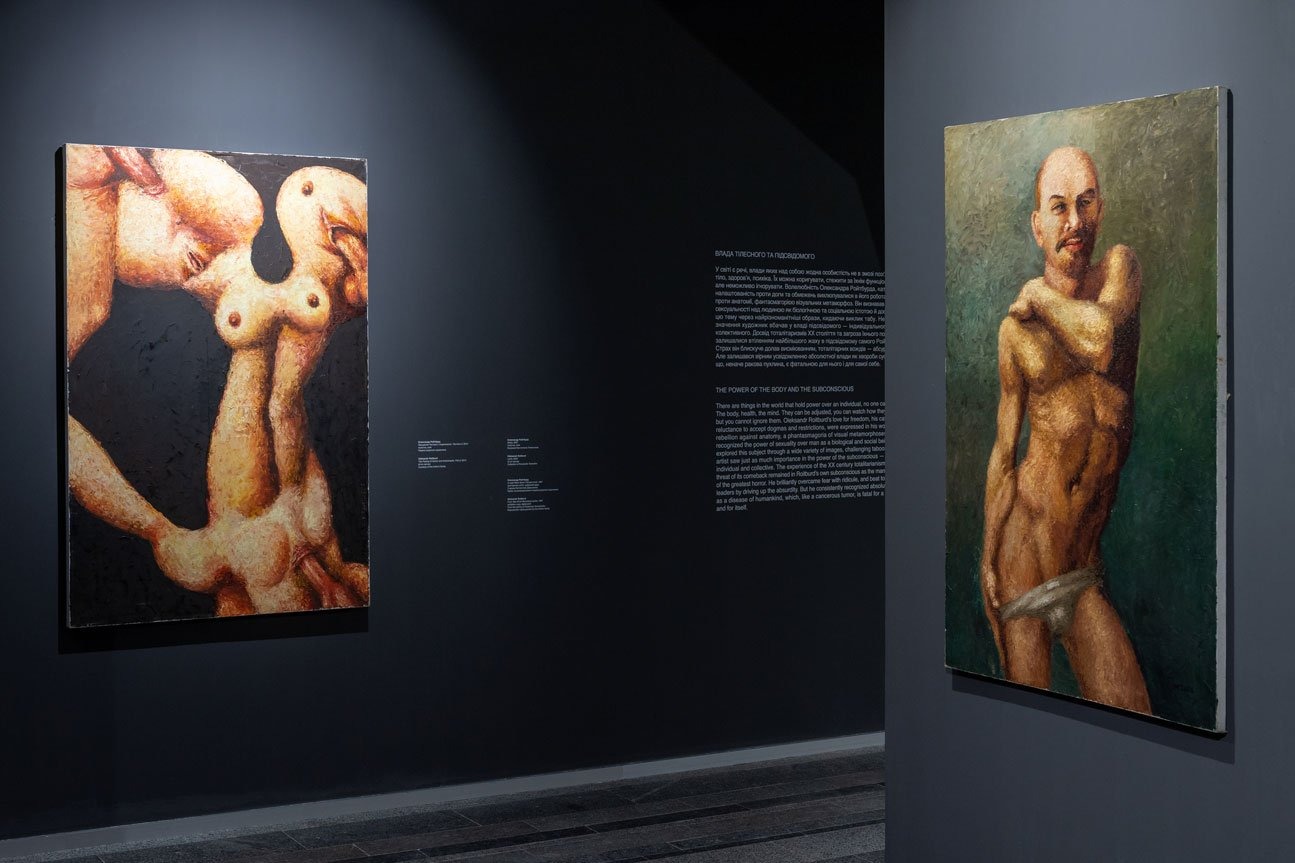
Oleksandr Roitburd
The Parting of Hector and Andromache. Part 2, 2010
oil on canvas
Courtesy of the Artist’s Family
Photo in the exposition
Oleksandr Roitburd
Lenin, 2007
oil on canvas
Сollection of Konstantin Tymonkin
Photo in the exposition
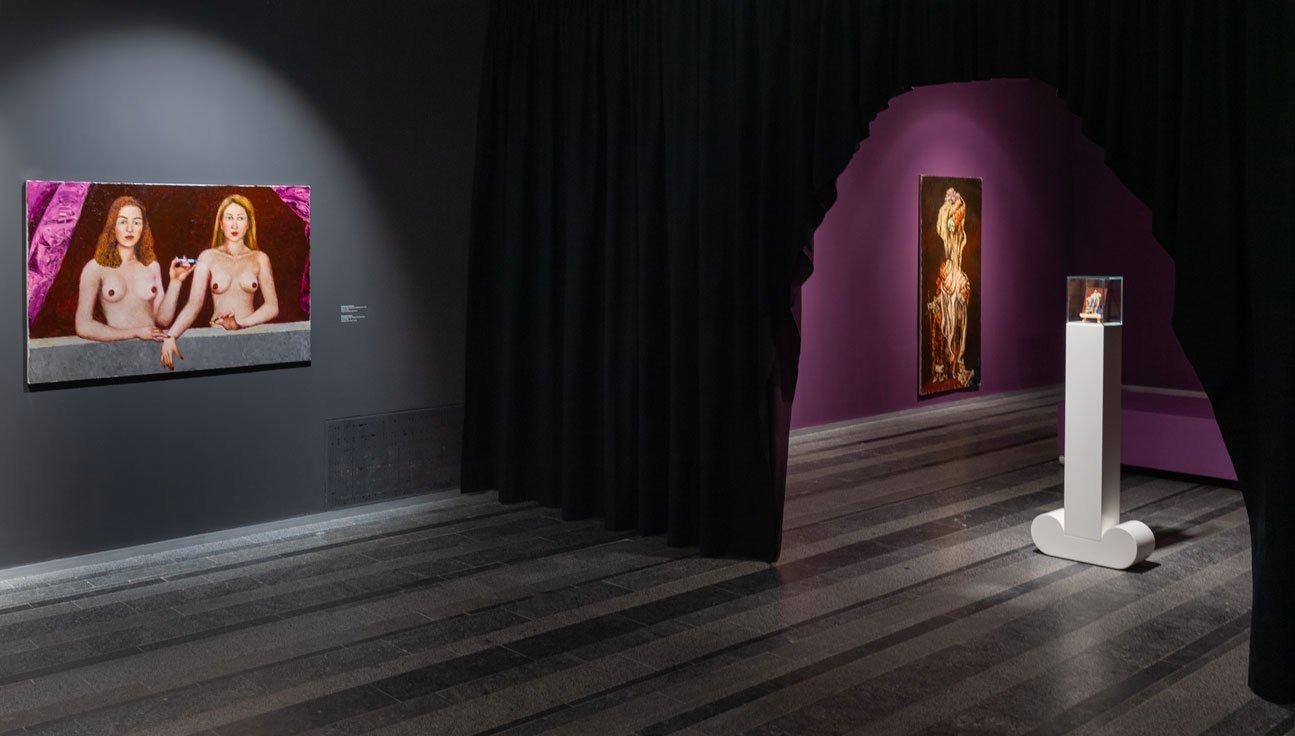
Oleksandr Roitburd
Fontainebleau Girls Getting Vaccinated, 2021
oil on canvas
Courtesy of the Artist’s Family
Photo in the exposition
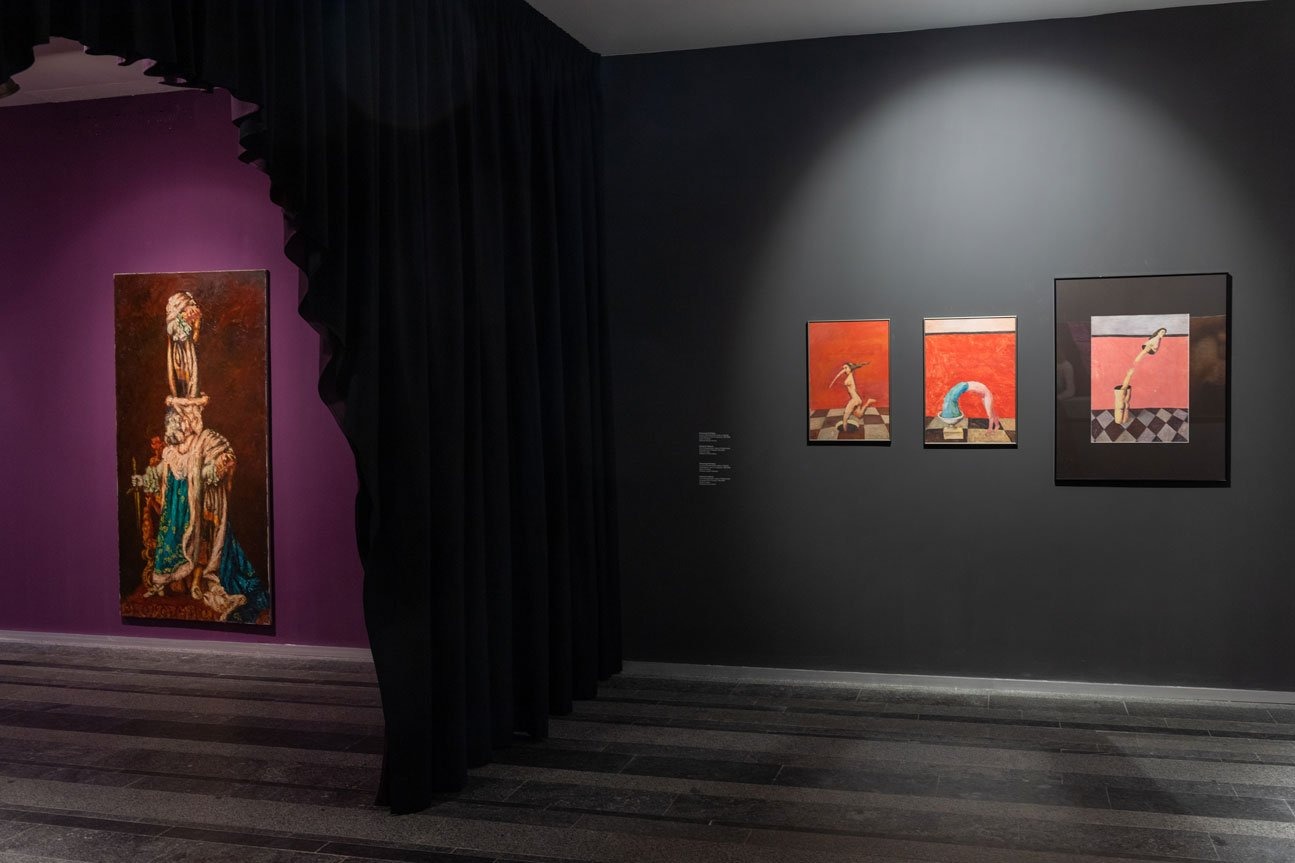
Oleksandr Roitburd
From Всекидневният живот в Помпей cycle [Everyday Life in Pompeii], 1994-2000
acrylic on paper
Collection of Matvii Nikitin
Photo in the exposition
We express our gratitude to Lesia Kulchynska, who, along with Kostiantyn Doroshenko, commenced work on the exhibition in 2021, as well as to Halyna Hleba and Daria Shevtsova, participants of previous compositions of the Research platform, and Kateryna Lazarevych, our archivist.
We are also thankful to Iryna Dratva, Roman Zvyniatskovskyi, Semen Kantor, Oleksandra Kovalchuk, Sonia Koshkina, Anna Makolkina, Betti Roitburd and Olha Salo for their assistance in creating the exhibition.

